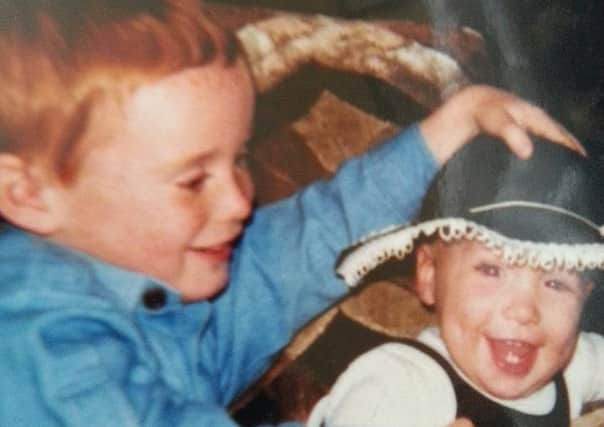Epilepsy programme to honour brother


Fraser Morton, 36, from East Lothian, has unearthed stories from sufferers in India, Indonesia, Australia as well as Bangladesh, Pakistan, Mongolia in an attempt to shed light on the condition that killed his brother Blair at 19.
In the UK there are around 1,000 epilepsy-related deaths each year. Around half of these are due to Sudden Unexpected Death in Epilepsy (SUDEP), a condition where no other cause of death can be found, and a fatal epilepsy seizure is suspected.
Advertisement
Hide AdAdvertisement
Hide Ad“Epilepsy is a subject of great personal interest to me and family and a subject I feel is not getting the attention it deserves,” said Fraser, from Dunbar in East Lothian.
“As a documentary-maker I spend a lot of time travelling for work and in the places I have visited I have found there is huge disparity between healthcare, spirituality and community in cultures worldwide with treatment of people with epilepsy.”
“Violence, persecution, ostracisation, discrimination, polarisation, you will be hard pressed to find a health issue that is as stigmatised as epilepsy on a global scale. It exists, we know about it, but we don’t speak about it.”
“Approximately 50 million people worldwide have epilepsy, making it one of the most common neurological conditions globally.”
“While it is one of the oldest illnesses of our time, it is also one of the most misunderstood. Stigma still exists, ignorance is rife and societal pressures and discrimination is present.”
“To humanise something we have to put a face to it and I am interested in exploring the people who live with epilepsy, with uncertainty and loss of control, but still strive for normal lives. They deserve our attention.”
“Everyone I have spoken to, and I include my late brother in this group, want to live fully unshackled by societal prejudice.”
“Epilepsy gets a bad rap in popular culture and it pisses me off. There are numerous recent examples of films and music demonising the condition. In 2019, this has to end.”
Advertisement
Hide AdAdvertisement
Hide AdMr Morton has launched an experimental online magazine exploring epilepsy and is currently producing a feature documentary to tell the contrasting stories of people living with epilepsy in 2019.
The project is called A Life Electric and comprises an online magazine with documentary film and book of the same name.
Mr Morton said: “A Life Electric is an attempt to use art as the spark for conversation – and really just to tell the story of epilepsy I think a lot of people don’t know.
“I want to open the door to this world we seldom see. Hopefully have some exhibitions and talks and bring people together.”
“I can only do this because of a talented group of friends, photographers, filmmakers, journalists who are helping me. Most of who I went to uni with at Napier in Edinburgh.
“I owe them a lot.
“I do not have epilepsy. My brother did. And I know the toll it took on his life.”
If you’ve been bereaved by epilepsy or would like more information, you can visit www.sudep.org.